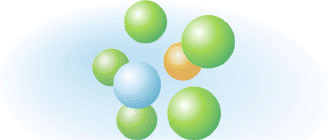3.4. Bioinformatic Services and Coordination.
Responsible: Prof. Roland Eils, DKFZ, Heidelberg.
Background:
Previous work with various experimentalists has strongly suggested a need for channelled bioinformatics support of functional genomics initiatives, for analysis of clinically relevant proteins, and for customised data analysis pipelines. Strengthening the bridge between bioinformatics and experimental research is a prerequisite if we are to expedite experimentation and to shape future projects efficiently. This sub-project is aimed at structuring this interface through the coordination of collaboration partners and the dissemination of knowledge and know-how about the systems developed.
Planned Work:
The services component is bipartite in nature, involving the development of customised sequence analysis pipelines on the one hand, and the identification of genes and functional modules, functional analysis of proteins, on the other. The services provided within this sub-project require a tight coordination and these tasks will be carried out by a coordinating manager. Further details are as follows:
-
Development of customised sequence analysis pipelines (Prof. Dr. S. Suhai). This work-package will capitalise on the services offered by the HUSAR Bioinformatics Lab at the Department of Molecular Biophysics at DKFZ.
-
Identification of genes and functional modules, functional analysis of proteins (Prof. Dr. P. Bork, Prof. Dr. T. Lengauer) – This service offers identification of genes and functional modules of interests within NGFN2. In the group of Thomas Lengauer, a pipeline was developed that takes the protein sequence according with any accompanying biological and clinical information on the protein as input. The process consists of performing various sequence- and phylogenetic analyses of the protein sequence, protein structure prediction, and a functional protein classification based on results of the preliminary analyses. The functional hypotheses on the protein can pertain to putative molecular binding partners, participation in certain biological processes, protein localisation etc. If mutation information is available, SNPs can be mapped onto structure models and lead to hypotheses on functional relevance of the SNP. The whole analysis process is interactive and not fully automated.
-
Coordination of bioinformatics services, training and counselling (Dr. Roland Eils) – The high degree of networks already established with KGs and other SMPs as well as the central role of bioinformatics for virtually all projects within NGFN2 argues for a central coordinating position within the SMP Bioinformatics. The responsibility of the coordinating manager will be twofold: First, internal coordination and supervision of training, counselling and service as well as developments within the SMP, and second, interface for KGs and other SMPs requiring bioinformatics support and/or services as well as reporting to the external advisory board and NGFN management system.


